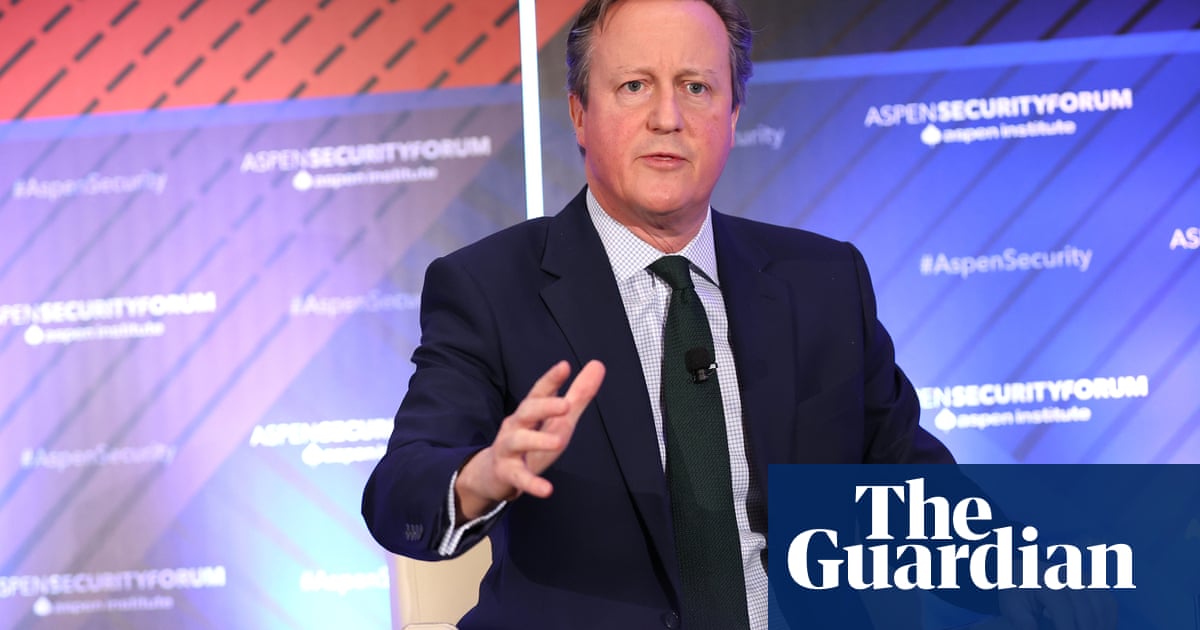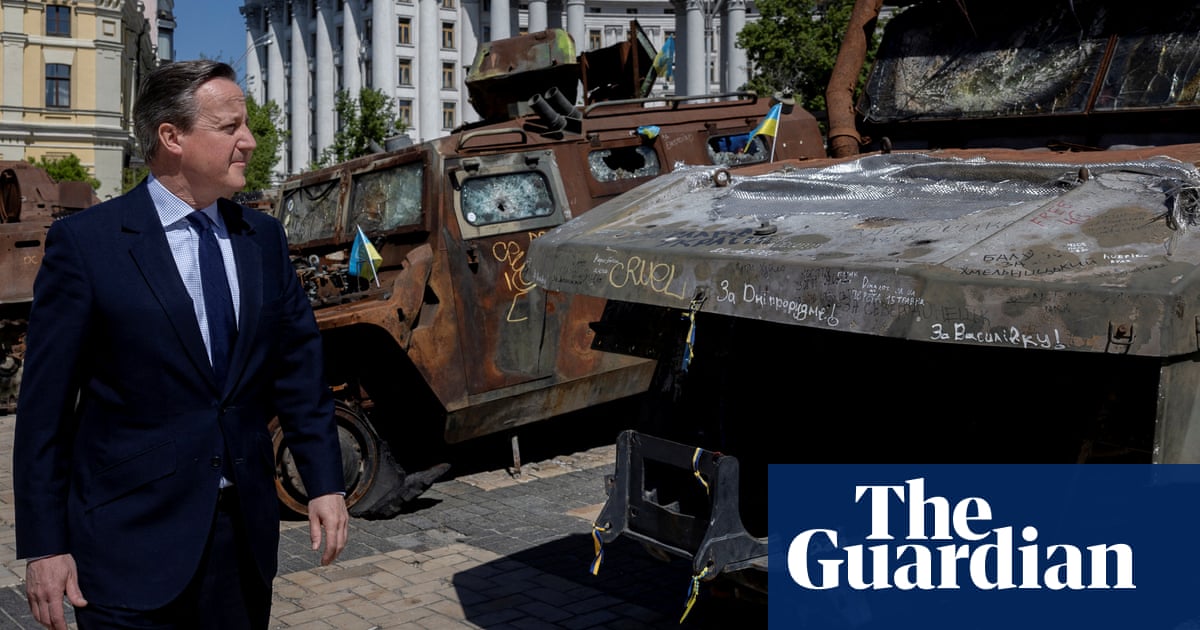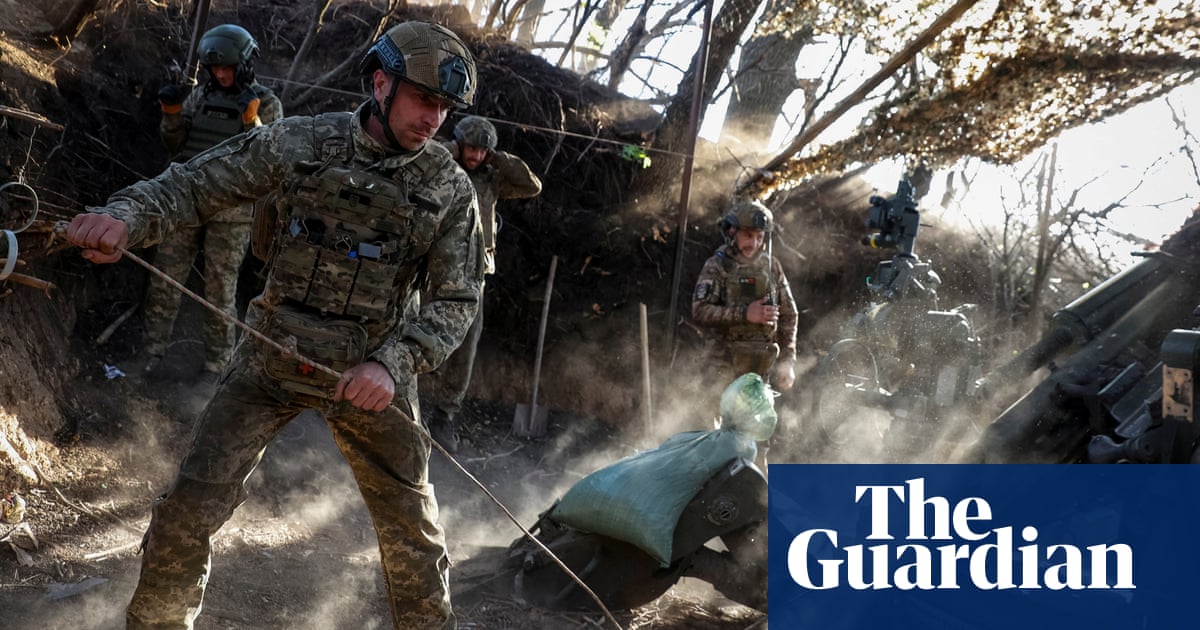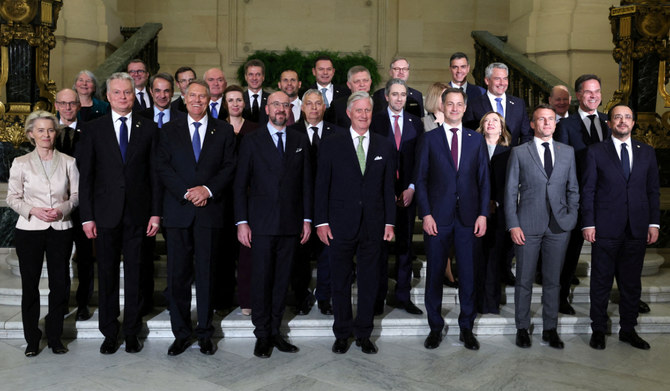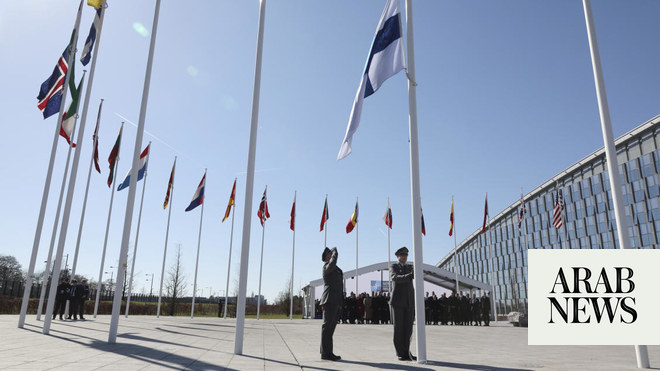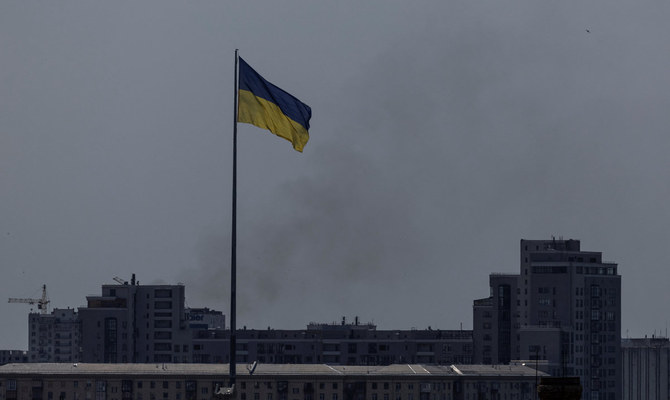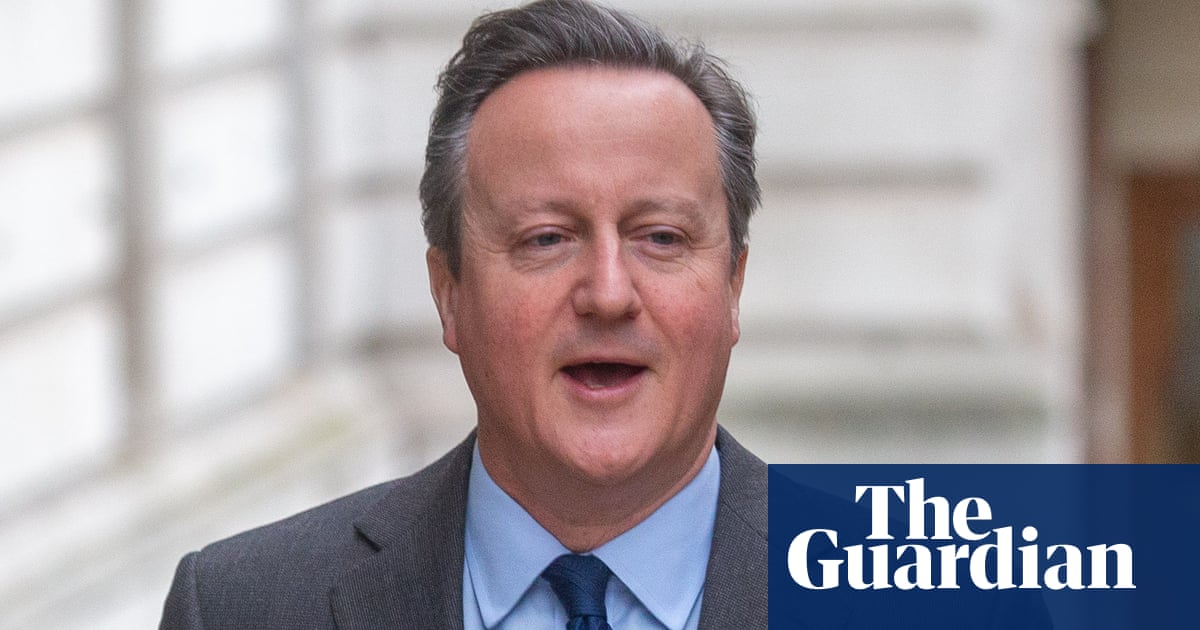
David Cameron will discuss strengthening Ukraine’s defences and finances against further Russian aggression with European partners in light of the continuing threat of the US Congress refusing to provide further financial support.
The foreign secretary is due to visit Bulgaria and Poland before meeting a host of European foreign ministers at a security conference in Munich on Friday.
The UK has not abandoned hopes Washington will agree to extra aid, and believes the Biden administration has the leeway to provide some aid regardless of Congress.
But Lord Cameron will raise how the European countries, including Poland, can increase defence production and accelerate plans to hand Ukraine the windfall profits from Russian assets seized by Europe.
Switching his gaze temporarily from the Middle East, he will visit Bulgaria on Wednesday and the newly elected government in Poland on Thursday in the run-up to the anniversary of the Russian invasion, and a G20 foreign ministers meeting in Brazil next week.
There is also expected to be a UN security council meeting in New York and a G7 leaders’ video call.
British officials are not expecting military breakthroughs for Ukraine this year but are confident that Ukraine can at least hold its ground and start to rebuild its economy, partly due to increased opportunities for naval grain corridors in the Black Sea to reopen after the Russian fleet was pushed east.
Britain is hoping the dispatch of more French Scalp missiles will weaken Russian air defences and radar facilities in Crimea, part of an incremental weakening of the Russian air superiority.
Exports of grain are now approaching prewar levels, with an expectation that Ukraine’s entire harvest will be exported this year, helping to add 5% to 6% to Kyiv’s revenues and push growth to higher than 10% in 2024.
Cameron has also been briefed that Ukrainian resilience to Russian attacks through the winter has been better than expected. More European countries are expected to make bilateral security commitments in the next fortnight, a sign of continued support that is balanced by the growing threat of US isolationism.
With 7% of Russian GDP now devoted to defence and a drawdown of a third of the liquid element of the national wealth fund over the last year, Cameron thinks increased pressure on the Russian economy through sanctions, tightening the oil price cap and restriction of the export of Russian liquefied natural gas to Europe may be as fruitful this year as military advances.
At a meeting with fellow leaders in Munich the foreign secretary intends to focus on European defence production and the unique moral case for seizing the profits derived from frozen Russian assets. Discussions within the G7 have intensified and EU leaders are likely in the next few weeks to press ahead with plans to seize the windfall profits from Russian investments in Euro-clear in Belgium.
Cameron said: “Putin believes he can get away with aggression, that he can wait out the west. We have the resources, the economic might and the expertise. We need to show that we have the will to see this through.
“We must stand up for freedom and match our words with action. On sanctions. On support for Ukraine. On defence production. And we must show unity; we must all stand with Ukraine and let them – and Russia – know that they have our support for the long haul.
Cameron, unlike one of his successors as prime minister, Boris Johnson, unambiguously regards Donald Trump’s possible election as US president as a threat to Ukraine and Nato but is intent on trying to influence the Republican party so its current isolationist mood can be tempered.




